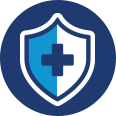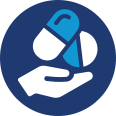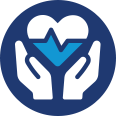Alcohol Detox in New Jersey
Our team of highly qualified addiction specialists provides services and resources such as alcohol detox in New Jersey, to prepare our clients for treatment and address their needs effectively.
The Impact of Alcoholism and the Path to Recovery in New Jersey
If you or someone you care about is facing challenges with alcohol, there is a solution. The compassionate and knowledgeable team at Discovery Institute in Marlboro, New Jersey is dedicated to assisting you in breaking free from the cycle of alcohol addiction. Our exceptional treatment services are based on scientific research and delivered with empathy. You don’t have to embark on your journey towards sobriety alone.
The first step in receiving treatment for alcohol dependency and alcohol addiction is detoxification or medical detox. During this phase, the body is eliminated from all traces of alcohol, which may result in withdrawal. Alcohol withdrawal symptoms can occur as early as four to six hours after a person’s last drink, and residual symptoms can last for weeks (although acute symptoms usually subside after one week).
Once you arrive at our rehab facility, the expert medical and clinical staff will oversee the alcohol detoxification process. They will support you in navigating the physical and psychological discomfort of withdrawal and guide you toward the subsequent stages of treatment.
Excessive drinking poses a significant public health concern, posing risks to both physical and mental well-being, as well as imposing substantial social and economic burdens. In the United States alone, alcoholism is responsible for over 85,000 deaths each year, with New Jersey experiencing more than 1,500 annual fatalities. According to research by America’s Health Rankings of the United Health Foundation, New Jersey ranks 14th in the United States for binge drinking (15.9%).
Our Alcohol Detox Process
Entering recovery, and going through the alcohol detox process can be a difficult and emotionally charged time. Discovery Institute in Marlboro, NJ understands the scary and uncomfortable aspects of detox that people often experience. Our trained medical professionals have the resources to professionally and safely manage alcohol withdrawal symptoms.
In addition, patients may enter detox with co-occurring physical and mental health conditions. Therefore, our team is also experienced in identifying and treating the physical and psychological symptoms that often manifest with these issues.
Discovery’s dedicated and compassionate staff is available around the clock to make sure we meet our client’s unique needs and circumstances. Individuals undergoing alcohol detox in New Jersey will have access to medical professionals who can:
- Address any concerns
- Adjust any treatment regimen as necessary
- Provide 24/7 monitoring and safety
- Beds to rest and sleep in
- Provide nutritious and appealing meals to re-establish healthy eating routines during the recovery journey.
- Discuss payment options and health insurance needs
To assist with the detox process, our doctors administer prescription and over-the-counter medications, which allows them to carefully assess patient progress and their symptoms. We help manage and ease the intensity of pain and cravings associated with alcohol withdrawal.
If you are looking for an alcohol detox center in New Jersey, Discovery Institute has seen successful recovery outcomes through our full continuum of care. We excel in addiction treatment and preparing our clients for the journey to recovery. While every situation is unique, our rehab center always strives to provide the best chance at achieving long-term sobriety.
Approximately one-third of the population may experience an alcohol use disorder (AUD) at some point in their lives. Alcohol is one of the most commonly consumed substances in the United States, with about 85% of individuals admitting to having consumed alcohol at some point, and over 25% acknowledging engaging in binge drinking in the previous month.
Prolonged alcohol consumption or drug use can lead to the brain adapting to the presence of these substances. This can result in a physical dependence on the substance, causing the individual to rely on it for normal functioning and well-being. Individuals who develop a dependency on these substances may face the possibility of encountering uncomfortable alcohol withdrawal symptoms when attempting to stop drinking or greatly decrease your alcohol consumption following a period of heavy use lasting over two weeks.
At Discovery Institute in Marlboro, New Jersey, our Alcohol detox center offers a secure and comfortable environment for managing withdrawal symptoms with various substances. Patients can eliminate the toxic effects of substances under the supervision of our team of healthcare providers, who can monitor vital signs and provide necessary medications to alleviate severe symptoms during the detox process.
When an individual decides to stop drinking, the body needs time to readjust, often leading to overcompensation and reactions. Sudden removal of a frequently used substance like alcohol can result in various unpleasant effects as the body tries to compensate for the absence of the substance.
If considering sobriety, it is advisable to consult a medical professional who may suggest a medical detox. This will ensure that any withdrawal symptoms can be properly managed by trained medical staff. The detoxification process plays a crucial role in managing withdrawal symptoms, providing both medical and psychological care to patients who are experiencing the effects of stopping or significantly reducing their drug use.
Since detoxification can be difficult, our dedicated and compassionate staff is available around the clock for our clients. We pride ourselves in providing the highest quality care possible, including safety, and compassion, monitoring individuals closely, attending to their unique needs, and answering any questions regarding the treatment process, and other important topics such as health insurance.
Once you arrive at our detox facility, Discovery’s expert medical and clinical staff will oversee the detoxification process. They will support you in navigating the physical and psychological discomfort of withdrawal and guide you toward the subsequent stages of treatment.
Since we administer medication to assist with the detox process, our doctors are also trained to monitor withdrawal symptoms and assess patient progress. Our staff understands that people often enter detox with outside physical and mental health concerns. We’re experienced in diagnosing and treating alcohol withdrawal symptoms along with any underlying conditions that may be exacerbating it, such as mental illness.
According to the U.S. Department of Health and Services, 13.5% of young adults aged 18 to 25 had both a substance use disorder and any mental illness in the past year. It’s common for people with an alcohol use disorder to have a mental health disorder as well. Alcoholism and depression are common co-occurring disorders, and therefore, we treat each condition as one entity.
We know that detox can be an emotionally charged and challenging time for many. Discovery has an amazing staff available to attend to each client’s needs. No matter the circumstance, we aim to give everyone the best chance of having a successful recovery outcome.
Alcohol withdrawal symptoms are uncomfortable for patients. Therefore, we provide them with prescription and over-the-counter medications to treat the less dangerous, but still uncomfortable aspects of detox, such as nausea. We also provide comfortable beds to rest, as many of our clients need a lot of sleep during this time. Nutritious, appealing meals are offered to patients, helping them to re-establish healthy eating routines that will serve them in their recovery journey.
Suppose you or a loved one is looking for an alcohol detox center in New Jersey. In that case, Discovery Institute offers evidence-based treatment services that have successfully helped people with various conditions and needs recover and sustain long-term sobriety. Luckily, at our alcohol detox center, you’ll never have embarked on your journey to recovery alone.
The Discovery Difference: Our Technology
Self-detoxing without the help and support of medical professionals can lead to relapse. We are committed to helping our clients safely and comfortably detox from substance use at Discovery Institute. When it comes to overcoming alcohol addiction, your physical health is our priority. That’s why we use wearable technology to monitor vitals and better understand the symptoms people are experiencing.
The initial stages of alcohol detox and recovery can be difficult and some withdrawal symptoms can be life-threatening. But, through our wearable technology, our nursing staff can easily read vitals and quickly act when an issue occurs. If there are changes in heart rate, signs of an oncoming seizure, tremors, stress levels, or any other physical withdrawal symptoms, we can swiftly jump into action due to the monitoring of Discovery’s wearable technology!
As our wearable technology works to properly and efficiently monitor and record vitals, our medical staff can have more time to focus on treating our clients’ needs. We’re revolutionizing the field of behavioral healthcare. That’s the Discovery Difference.
Alcohol Withdrawal Symptoms
During detox, the body strives to maintain internal stability through a process known as homeostasis by trying to compensate and adjust due to the absence of the substance it became tolerant and dependent on. As a result, the body triggers a physiological response, causing a variety of unpleasant physical, mental, and emotional withdrawal symptoms ranging from mild to severe, and even be deadly if left untreated. Common alcohol withdrawal symptoms include:
- Trembling and tremors
- Bone/muscle pain or aches
- Hunger or loss of appetite
- Fatigue
- Headaches
- Fever
- Nausea/vomiting
- Sweating
- Irritability and agitation
- Depression
- Anxiety
- Confusion
- Insomnia
- Paranoia
- Seizures
- Dilated pupils
- Restlessness
- Stomach issues
- Shaking or tremors
- Delirium tremens (DT) – A medical emergency characterized by hallucinations and seizures.
- Irregular heartbeat
- Hypertension (High blood pressure)
- Hallucinations
Alcohol Withdrawal Timeline
The specific length of withdrawal varies depending on the type of substance used and the level of dependence. The complete resolution of withdrawal symptoms can range from days to weeks, and in certain instances, even months, due to individual differences and other contributing factors.
Mild symptoms appear, such as a headache, mild anxiety and insomnia.
You may experience hallucinations, depending on the severity of withdrawal.
The majority of individuals experiencing mild to moderate withdrawal will usually experience the peak of symptoms and start to improve within this time frame. In cases of severe or complex withdrawal, the risk of seizures is greatest between 24 to 48 hours after the last drink. Delirium tremens may manifest between 48 to 72 hours after the last drink.
When an individual engages in prolonged drug abuse, the brain’s reward systems begin to slow down. This ultimately leads to the development of a physiological dependence on the substance. In many cases, drug users abruptly stop using or reduce their intake, resulting in what is known as discontinuation syndrome.
In essence, abruptly quitting alcohol, or going “cold turkey,” causes a decrease in brain activity. The stimulating effects that once targeted the brain’s reward system or the region responsible for triggering substance use gradually fade away. Consequently, this can lead to dependency, addiction, and the emergence of mental health symptoms such as depression and anxiety.
Alcohol withdrawal symptoms can manifest rapidly and aggressively, underscoring the importance of undergoing detoxification under the supervision of medical professionals. Some individuals may be hesitant to cease alcohol consumption due to the potential symptoms they may experience. In an attempt to detoxify themselves at home, they inadvertently worsen their condition.
This adjustment period can trigger mild to severe alcohol withdrawal symptoms such as headaches, fever, nausea, irregular heartbeat, and hallucinations as the body strives to maintain internal stability through a process known as homeostasis. Some individuals may be hesitant to cease alcohol consumption due to the potential symptoms they may experience. In an attempt to self-detox at home, they inadvertently worsen their condition.
Given the potentially life-threatening nature of these symptoms, seeking medical attention for a comprehensive care plan involving alcohol detox and treatment in a supervised setting is crucial. Although quitting alcohol can be a challenging endeavor, the brain’s remarkable ability to adapt allows it to form new, healthy connections over time.
At Discovery Institute’s alcohol detox center in Marlboro, NJ, our team of addiction treatment specialists assists clients with alcohol use disorders. Through a combination of medications, therapy, and comprehensive aftercare services, we strive to alleviate symptoms, manage cravings, and provide a medically safe environment for recovery. With the appropriate support, individuals grappling with alcoholism can navigate the path toward long-term sobriety.
Find out how we can help
Our compassionate counselors are standing by to answer any questions you may have. After helping thousands of people over the last 50 years, we have the resources to help you and your family and all your individual needs.
After alcohol detox, the journey to recovery doesn’t end.
Create Your Continuing Care Plan at Discovery
The detoxification process helps manage acute withdrawal symptoms, but it’s important to note that psychological symptoms may linger beyond this initial phase. Therefore, ongoing treatment post-detox is crucial for comprehensive care.
The Recovery Continuum of Care refers to the structure designed to offer thorough and well-coordinated care for individuals who are in recovery from substance use disorders. It encompasses a variety of services and assistance that are customized to address the specific requirements of individuals overcoming addiction. Our plan includes the following levels of care:

Prevention and Early Intervention
Prevention is the first stage in the continuum of care, using primary and secondary strategies to reduce the risk of substance use disorder. Primary prevention educates about the dangers of drug or alcohol use through school and community programs, while secondary prevention involves early identification and intervention for at-risk individuals through screening and assessment. The next step, early intervention, helps those showing signs of addiction before it worsens, using methods like individual counseling, group therapy, and family involvement.

Treatment Programs
After identifying a substance use disorder, the subsequent course of action involves seeking professional assistance for treatment. This encompasses behavioral therapies aimed at altering thoughts and behaviors associated with substance use, alongside medications that can alleviate cravings and withdrawal symptoms. Treatment programs are customized to cater to the specific requirements of each patient and may encompass inpatient or outpatient services, residential treatment centers, or specialized programs designed for adolescents.

Aftercare / Continuing Care Plan
After successfully finishing treatment, individuals must prioritize ongoing aftercare to sustain their sobriety and continue progressing toward recovery. Aftercare encompasses various forms of support, including participation in support groups, residing in sober living facilities, receiving individual therapy, attending family counseling sessions, and accessing other types of assistance to ensure long-term success in maintaining sobriety. Moreover, engaging in activities that foster wellness, such as regular exercise and adopting healthy eating habits, can greatly contribute to individuals’ ability to stay on track with their recovery journey.

Recovery Support
Maintaining and attaining sobriety is a continuous journey that demands persistent dedication, drive, and assistance. Individuals must establish a robust support system comprising family, friends, and experts who can offer unwavering encouragement and aid whenever necessary. Moreover, online platforms like addiction recovery forums and websites can serve as valuable resources for discovering supplementary support.
At Discovery Institute, our team provides a continuing care plan not just in the beginning, but most importantly, post-treatment as well. We believe that having a continuum of care has proven to provide our clients with the most optimal recovery outcomes.
Am I An Addict?
Alcohol Detox FAQs
When someone engages in drug and alcohol abuse, significant changes occur in both brain structure and chemistry, along with mental functioning. As a result, this leads to challenging withdrawal symptoms and intense cravings.
Dopamine plays a crucial role in motivation, reward, pleasure, and motor functions. Additionally, it appears to be essential for various aspects of brain function, including the regulation of emotional responses, memory and focus, mood and cognition, coordination, and more.
A study investigating dopamine and alcohol use disorder discovered that chronic alcohol use can disrupt dopamine signaling in the brain. This neurotransmitter plays a crucial role in motivation, reward, pleasure, motor functions, regulation of emotional responses, memory and focus, mood and cognition, coordination, and more. Alcohol interferes with neurotransmitter activity, particularly in the brain’s reward and stress pathways, leading to addictive behaviors such as excessive drinking, which eventually can lead to alcoholism.
The consumption of alcohol in the short term affects brain function by altering the balance between inhibitory and excitatory neurotransmission. Alcohol is classified as a depressant, and when consumed, it temporarily elevates dopamine levels in the brain’s reward system. This creates a short-term sense of pleasure or a euphoric “high” and reinforces drinking behaviors. When someone quits drinking alcohol after doing so for a long time, this reward or feelings of euphoria go away, and the brain and body compensate for the lack of substance, resulting in withdrawal.
Medical detox for a substance use disorder such as alcohol addiction is necessary when an individual is unable to control the amount they drink. While many people do not feel like they need alcohol detox, it’s necessary along with treatment programs to conquer addiction.
For most people who do not have alcohol use disorder, drinking is done socially and casually, for special occasions, or on the weekends. Individuals who excessively drink, do it so they can function normally but often become dependent upon it. As a result, there are some red flags that concerned individuals, their family members, and loved ones can watch out for, which may indicate an alcohol dependence problem.
Substance abuse treatment is crucial for anyone with a substance use disorder. The reason is that alcohol is a depressant, therefore the effects of detox will be very effective. However, attempting to get clean and self-detox without professional medical supervision is unsafe, unsuccessful, and taxing.
Risking the high probability of relapsing is not worth it or wise. Depending on the severity of the addiction, it could lead to extreme sickness due to withdrawal symptoms or worse, overdose, coma, and even death. That’s why it’s important to go to a drug and alcohol addiction treatment center or alcohol detox center.
The bottom line is if anyone is struggling with any type of substance abuse including alcohol, detox is necessary. Unless this first step of recovery is medically supervised, withdrawal symptoms and cravings are too powerful and unsafe for someone to manage on their own without a doctor present.
The average amount of time spent in an alcohol detox center was 18 days for residential, and an average of 28 days for outpatient detox. At the Discovery Institute, we want you to know that we have the most professional services available.
However, you need to decide to reach out and connect with us. We do not want you to not have your needs unmet. Our team will ensure that you receive treatment at one of our detox centers.
For someone with physical alcohol dependence, drug and alcohol detox can be dangerous if not done properly or alone. To prevent dangerous and occasionally fatal alcohol withdrawal symptoms, it is usually necessary for people with alcohol dependence to undergo addiction detox in a medically supervised facility. Drug and alcohol detox in New Jersey is different for each person based on several factors. These factors include:
- The amount of time a person has been drinking excessively
- Underlying medical and emotional issues
- Overall physical health
- How much alcohol the patient was consuming
After about one month of no alcohol, the body generally begins making good progress in healing itself, especially after attending one of the most ideal detox centers for treatment. This depends on many factors, though. Time spent in one of the detox centers can depend on how much you drink and how long you’ve been drinking. Those factors will play into treatment.
For someone with physical alcohol dependence, drug and alcohol detox can be dangerous if not done properly or alone. To prevent dangerous and occasionally fatal alcohol withdrawal symptoms, it is usually necessary for people with alcohol dependence to undergo addiction detox in a medically supervised facility.
While a client is detoxing at Discovery Institute, we ensure they are as comfortable and safe as possible. Withdrawal not only affects the reward systems in the brain but also has an impact on other aspects. For instance, individuals who heavily rely on alcohol and stop drinking often experience a range of cognitive and physical alcohol withdrawal symptoms such as mild to severe anxiety, insomnia, sleep disturbances, changes in heart rate, agitation, mood swings, nausea and vomiting, etc.
Alcohol is a sedative drug that slows down brain function. In response, many brain circuits increase their activity levels. Without alcohol, these circuits become hyperactive, resulting in anxiety, hallucinations, seizures, and even potentially fatal outcomes if left untreated or due to self-detoxing.
Most detox patients require alcohol withdrawal medications used to prevent seizures and the symptoms of delirium tremens. Our highly trained medical professionals are experienced in the management of withdrawal and ensure that our clients receive the proper care through the detoxification process.
Patients are given regular assessments throughout their detox process to monitor vital signs such as heart rate and temperature. This is to ensure that they are receiving the correct medication and treatment.
Within just three weeks of stopping alcohol abuse at one of the detox centers for treatment, your blood pressure will begin to reduce. In many cases, people who stop drinking can experience better short-term memory within one week of not drinking. Two other short-term benefits of quitting drinking include better sleep patterns and clearer skin.
Generally, the more a person drinks, the worse a person’s drug and alcohol detox symptoms will be. Heavy drinkers can expect to experience minor alcohol withdrawal symptoms within six hours after their last drink. Minor symptoms generally continue for the following 24-48 hours. Within 72 hours of your last drink, you can expect to experience more severe alcohol withdrawal symptoms, such as delirium tremens, which you will need substance use treatment for. After 72 hours, alcohol withdrawal symptoms tend to be at their worst. In some cases, moderate symptoms can even last for a month.
Each person is different and requires an individualized approach to their addiction detox plan. At Discovery Institute, we create individual treatment plans geared toward substance abuse treatment.
If you have any questions about health insurance and what your plan covers, we can help verify to provide the best possible outcome for receiving treatment. We understand that rehab can be expensive and the recovery journey is stressful enough. Our admissions team aims to make the process as seamless as possible.
Recovery Awaits At Our Alcohol Detox Center In New Jersey
Clients are encouraged to seek counsel from any of our staff members, including nurses, doctors, therapists, and technicians. Each member of our staff has a passion for assisting those who struggle with addiction and alcoholism to reach their full potential in life. Reaching your full potential begins with a safe and complete detox from any mood and mind-altering substances, including alcohol.
Support is critical during symptoms of alcohol withdrawal. It’s also necessary before the detox process to make sure everything is up to date with your health insurance. That’s where we come in to assist you.
At Discovery Institute of New Jersey, we pride ourselves on providing all of the support a person would need during their recovery journey, in a well-rounded, supportive, safe, and healthy environment. For more information on alcohol addiction treatment, including the detox process, please contact us today.




